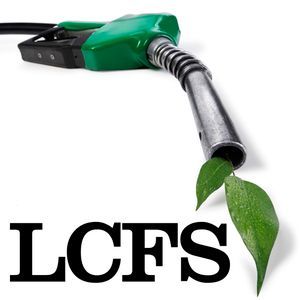California LCFS amendments approved in November paused over clarity issues

February 20, 2025
BY Erin Voegele
The California Air Resources Board on Feb. 18 announced that amendments to its Low Carbon Fuel Standard program that were approved in November 2024 have been put on hold following the California Office of Administrative Law’s decision to disapprove the amendments due to clarity issues.
In a notice posted to its website, CARB indicated that OAL on Feb. 18 sent the agency a Notice of Disapproval of Regulatory Action on the LCFS amendments pursuant to Government Code section 11349.3. The notice explains that OAL cited inconsistencies of specific regulatory amendment provisions with the clarity standard in Government Code section 11349(c). That section of California law addresses the definition of “clarity” in the context of state regulations, requiring regulations to be written or displayed so that the meaning of the regulations will be easily understood by the people directly affected by them. CARB said it expects to receive more information from OAL detailing its reasons for the decision soon.
According to the notice, CARB staff plan to address the concerns raised by OAL and resubmit the LCFS amendments to the agency. Under California regulations, CARB is able to rewrite and resubmit the amendments to OAL within 120 days of OAL’s written decision. Any substantive modifications to the amendments will be released for public comment.
In the meantime, CARB said it will continue to implement the current version of the LCFS regulation, which came into force in July 2020.
Advertisement
Advertisement
CARB on Nov. 8 approved updates to its LCSF that aim to reduce the carbon intensity of the state’s transportation fuel by 30% by 2030 and by 90% by 2045. The updates also include a variety of technical changes to the LCFS program, including those requiring fuel producers to track crop-based and forestry-based feedstocks to their point of origin; requiring independent feedstock certification to ensure biomass-based diesel and sustainable aviation fuel (SAF) feedstocks are not undermining natural carbon stocks; changes prohibiting palm-derived fuels from receiving credits; a cap on the use of soybean oil, canola oil and sunflower oil in the production of LCFS-compliant biodiesel diesel fuels; and updates that phase out avoided methane crediting associated with the use of biomethane as a combustion fuel but extend the use of biomethane for renewable hydrogen.
CARB submitted the final regulatory package to OAL on Jan. 3. OAL on Feb. 18 notified CARB of its intention to disapprove the LCFS amendments. A full copy of CARB’s Feb. 18 notice is available on the agency’s website.
Advertisement
Advertisement
Related Stories
The European Commission on July 18 announced its investigation into biodiesel imports from China is now complete and did not confirm the existence of fraud. The commission will take action, however, to address some systemic weaknesses it identified.
On July 18, U.S. EPA announced a reduction in force (RIF) as the agency continues its comprehensive restructuring efforts. With organizational improvements, EPA is delivering $748.8 million in savings.
The U.S EPA on July 17 released data showing more than 1.9 billion RINs were generated under the RFS during June, down 11% when compared to the same month of last year. Total RIN generation for the first half of 2025 reached 11.17 billion.
The U.S. EPA on July 17 published updated small refinery exemption (SRE) data, reporting that six new SRE petitions have been filed under the RFS during the past month. A total of 195 SRE petitions are now pending.
The USDA has announced it will delay opening the first quarterly grant application window for FY 2026 REAP funding. The agency cited both an application backlog and the need to disincentivize solar projects as reasons for the delay.
Upcoming Events










